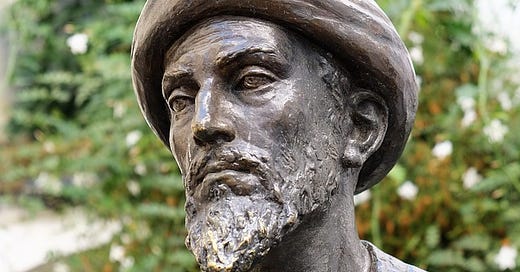Is The Intellectual Project Spiritual?
Maimonides, Aristotle, and the Future of Religious Reason
Maimonides, according to Moshe Halbertal, saw “philosophy and science as the medium for attaining the heights of religious experience—love and awe.”
For Maimonides, the philosophical quest was religious, the intellectual endeavor spiritual. Thus, Aristotle was—in his estimation—one of the greatest human beings to have ever lived, attaining the height of…
Keep reading with a 7-day free trial
Subscribe to What Is Called Thinking? to keep reading this post and get 7 days of free access to the full post archives.



